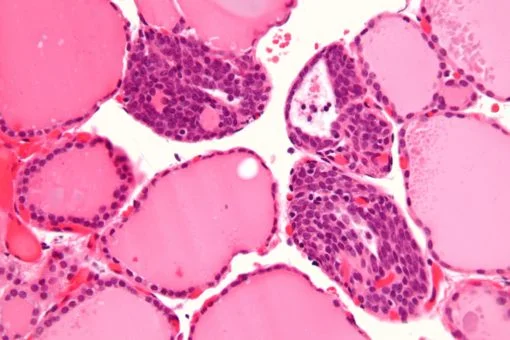Health Topics
Thyroid Support
The thyroid gland serves as the fuel center and energy regulator for every cell in our bodies. Low thyroid function, or hypothyroidism, is a condition in which the thyroid is not producing sufficient quantities of thyroid hormones. Hashimoto’s thyroiditis is the most common form of hypothyroidism and is thought to be an autoimmune condition. In the past, low consumption of iodine was thought to be the main cause of hypothyroidism. While iodized table salt helps to reduce the incidence of iodine deficiency, many individuals also use a kelp supplement, which contains iodine, to ensure adequate iodine availability to the thyroid gland. Hypothyroidism is more prevalent in women than in men. Hormonal imbalances also can affect thyroid function. Hyperthyroidism, or Grave’s disease, is a condition in which thyroid function is overactive and is also thought to be an autoimmune condition.
The symptoms of hypothyroidism can include fatigue, dry skin, constipation, hoarseness, thinning hair, brittle nails, weight gain, memory loss, cold hands and feet, and intolerance to cold. There is also a direct link between adrenal health and thyroid health. Daily stress resulting in adrenal fatigue can have an adverse effect on thyroid function and overall energy levels since the adrenal gland competes with the thyroid gland for the same supportive nutrients. That is why treatment of thyroid dysfunction often involves also treating and supporting adrenal function with nutrients and herbal substances known as adaptogens. When the adrenal gland is supported, thyroid function usually improves as well. The main hormones produced by the thyroid gland are T-4 (levothyroxine) and T-3 (liothyronine). The key to proper thyroid function and energy regulation is the effective conversion of the less active T-4 hormone form to the more active T-3 hormone form. Nutrients that have been found helpful in aiding this conversion are iodine, zinc, and selenium. If low thyroid production is suspected, the steps involved in supporting thyroid production are:
- Ensure adequate iodine intake, which is critical for proper thyroid function.
- Use additional nutrients like zinc, selenium and tyrosine to encourage conversion of T-4 to T-3.
- Ensure that the adrenal glands are also supported.
These supportive nutrients can be obtained as individual entities or can be found in a multiple-ingredient formulation, such as Thyroid Support with Zinc or AdreBoost-NG and Adrenal Health, Glandular.
